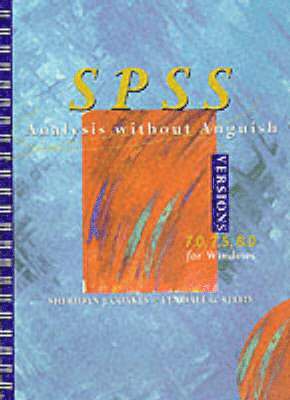
- Format
- Häftad (Paperback)
- Språk
- Engelska
- Antal sidor
- 286
- Utgivningsdatum
- 1999-03-01
- Upplaga
- 1
- Förlag
- John Wiley & Sons Ltd
- Medarbetare
- Steed, Lyndall G.
- Illustrationer
- illustrations
- Volymtitel
- 7.0, 7.5, 8.0 for Windows
- Dimensioner
- 295 x 225 x 25 mm
- Komponenter
- with 3.5 disk
- ISBN
- 9780471340805
SPSS Analysis 7.0, 7.5, 8.0 Windows
Analysis without Anguish
Slutsåld
Kundrecensioner
Innehållsförteckning
Introduction to SPSS; preparation of data files; data screening and transformation; descriptive statistics and the tables function; working with output; correlation; t-tests; one-way between groups ANOVA with post-hoc comparisons; one-way between groups ANOVA with planned comparisons; two-way between groups ANOVA; one-way repeated measures ANOVA; two-way repeated measures ANOVA; trend analysis; mixed plot design (SPANOVA); one-way analysis of covariance (ANCOVA); reliability analysis; factor analysis; multiple regression; multivariate analysis of variance (MANOVA); non-parametric techniques; multiple response and multiple dichotomy analysis; cluster analysis; multiple discriminant analysis.
Du kanske gillar
-
Atomic Habits
James Clear
Häftad -
The Daily Laws
Robert Greene
Häftad -
Nexus
Yuval Noah Harari
Häftad
